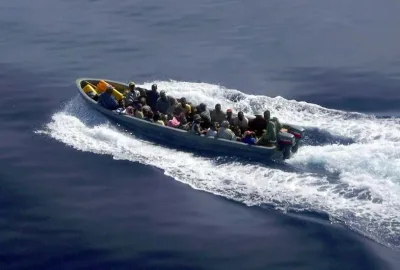Berlin, 25 January 2022 – The 2021 Corruption Perceptions Index (CPI) released today by Transparency International shows that corruption…
Berlin, 25 January 2022 – The 2021 Corruption Perceptions Index (CPI) released today by Transparency International shows that corruption levels remain at a standstill worldwide, with 86 per cent of countries making little to no progress in the last 10 years.
Transparency International found countries that violate civil liberties consistently score lower on the CPI. Complacency in fighting corruption exacerbates human rights abuses and undermines democracy, setting off a vicious spiral. As these rights and freedoms erode and democracy declines, authoritarianism takes its place, contributing to even higher levels of corruption.
Delia Ferreira Rubio, Chair of Transparency International said:
“Human rights are not simply a nice-to-have in the fight against corruption. Authoritarian approaches destroy independent checks and balances and make anti-corruption efforts dependent on the whims of an elite. Ensuring people can speak freely and work collectively to hold power to account is the only sustainable route to a corruption-free society.”
GLOBAL HIGHLIGHTS
The CPI ranks 180 countries and territories by their perceived levels of public sector corruption on a scale of zero (highly corrupt) to 100 (very clean).
The CPI global average remains unchanged at 43 for the tenth year in a row, and two-thirds of countries score below 50.
- The top countries on the Index are Denmark (88), Finland (88) and New Zealand (88), all of which also rank in the top 10 per cent in the world on the Democracy Index civil liberties score.
- Somalia (13), Syria (13) and South Sudan (11) remain at the bottom of the CPI. Syria is also ranked last in civil liberties (Somalia and South Sudan are unrated).
- 27 countries – among them Cyprus (53), Lebanon (24) and Honduras (23) – are all at historic lows this year.
In the last decade, 154 countries have either declined or made no significant progress.
- Since 2012, 23 countries have significantly declined on the CPI – including advanced economies such as Australia (73), Canada (74) and the United States (67), the latter dropping out of the top 25 countries on the Index for the first time.
- 25 countries have significantly improved their scores, including Estonia (74), Seychelles (70) and Armenia (49).
For each country’s individual score and changes over time, as well as analysis for each region, see the 2021 CPI page.
CORRUPTION, HUMAN RIGHTS AND DEMOCRACY
As anti-corruption efforts stagnate and deteriorate, human rights and democracy are under attack. This is no coincidence. The continued use by governments of the COVID-19 pandemic to erode human rights and democracy could also lead to sharper declines across the globe in the future.
Of the 23 countries whose CPI score significantly declined since 2012, 19 also declined on the civil liberties score. Moreover, out of the 331 recorded cases of murdered human rights defenders in 2020, 98 per cent occurred in countries with a CPI score below 45.
- The Philippines has continued its fall beginning in 2014 to a score of 33, as President Rodrigo Duterte has cracked down on freedoms of association and expression since his election in 2016. It also has an exceptionally high murder rate of human rights defenders, with 20 killed in 2020.
- In Venezuela, the government of President Nicolás Maduro has repressed dissent of political opponents and journalists. The country has significantly declined on the CPI over the last decade, earning its lowest score yet of 14 in 2021.
- Mali has faced political, institutional and security crises, including three military coups during the past 10 years. Its CPI score has dropped to 29 and its civil liberties score is also declining, as ongoing armed conflict undermines key state functions, leading to a vicious cycle of corruption and human rights abuses.
- Even among democracies, the last decade has seen backsliding on both anti-corruption efforts and human rights. Poland’s civil liberties score declined and its CPI score dropped to 56, as the government cracks down on activists through insult laws and severely limits media freedom.
Transparency International calls on governments to act on their anti-corruption and human rights commitments and for people across the globe to join together in demanding change.
Daniel Eriksson, Chief Executive Officer of Transparency International said:
“In authoritarian contexts where control over government, business and the media rests with a few, social movements remain the last check on power. It is the power held by teachers, shopkeepers, students and ordinary people from all walks of life that will ultimately deliver accountability.”
About the Corruption Perceptions Index
Since its inception in 1995, the Corruption Perceptions Index has become the leading global indicator of public sector corruption. The Index scores 180 countries and territories around the world based on perceptions of public sector corruption, using data from 13 external sources, including the World Bank, World Economic Forum, private risk and consulting companies, think tanks and others. The scores reflect the views of experts and business people.
The process for calculating the CPI is regularly reviewed to make sure it is as robust and coherent as possible, most recently by the European Commission’s Joint Research Centre in 2017. All the CPI scores since 2012 are comparable from one year to the next. For more information, see this article: The ABCs of the CPI: How the Corruption Perceptions Index is calculated.
Notes to editors
- These countries significantly declined in the last 10 years: Australia, Bosnia and Herzegovina, Botswana, Canada, Chile, Cyprus, Guatemala, Honduras, Hungary, Lebanon, Liberia, Luxembourg, Mali, Mongolia, Nicaragua, Philippines, Poland, Saint Lucia, South Sudan, Syria, Turkey, United States of America and Venezuela.
- These countries significantly improved in the last 10 years: Afghanistan, Angola, Armenia, Austria, Belarus, China, Cote d’Ivoire, Estonia, Ethiopia, Greece, Guyana, Italy, Latvia, Moldova, Myanmar, Nepal, Paraguay, Senegal, Seychelles, South Korea, Tanzania, Timor-Leste, Ukraine, Uzbekistan and Vietnam.
- These 27 countries are at their lowest score since the earliest comparable year of available data (2012): Australia, Belgium, Botswana, Canada, Comoros, Cyprus, Dominica, Eswatini, Honduras, Hungary, Israel, Lebanon, Lesotho, Mongolia, Netherlands, Nicaragua, Niger, Nigeria, Philippines, Poland, Serbia, Slovenia, South Sudan, Switzerland, Thailand, Turkey and Venezuela.
- The media page includes the CPI 2021 report in five languages, as well as the full dataset and methodology, and additional analysis for countries identified as important to watch, including Qatar (63) and India (40). See here: https://www.transparency.org/en/cpi/2021/media-kit
Interview requests
In case of country-specific queries, please contact Transparency International’s national chapters.
In case of queries around regional and global findings, please contact the Transparency International Secretariat: press@transparency.org.







